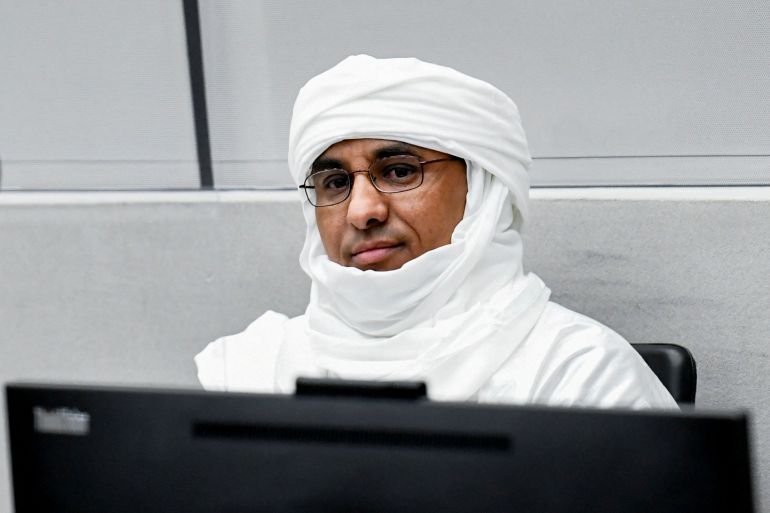ICC prosecutors: Mali rebel ‘enthusiastic’ war crimes perpetrator
Al Hassan Ag Abdoul Aziz called central figure in an al Qaeda-linked group that tormented Malians in closing arguments of war crimes trial.

A Malian rebel was a key figure in “blatant persecution” of residents of Timbuktu in northern Mali and an enthusiastic participant in war crimes, prosecutors argued on Tuesday in closing arguments in a trial before the International Criminal Court (ICC).
The trial against Al Hassan Ag Abdoul Aziz, 45, began nearly three years ago in The Hague on charges of war crimes, crimes against humanity, rape and sexual slavery. Over eight hundred victims were authorised to participate in the trial.
Keep reading
list of 4 itemsGunmen kill at least 11 in two attacks in Pakistan’s Balochistan
Pakistan slams Indian minister’s remarks on pursuing suspects across border
Rights advocates demand end to Haiti deportations as unrest continues
Prosecutors on Tuesday identified Al Hassan as a leader in the al Qaeda-linked Ansar Dine group, which controlled every aspect of daily life in Timbuktu after its 2012 takeover.
Al Hassan headed a police force created by the group that tormented the city, especially women, who were subjected to rape, forced marriages and sexual slavery, prosecutors said. He surrendered to the ICC a few days after a warrant was issued for his arrest in March 2018.
“What we are dealing with is a case of voluntary, should I even say enthusiastic and jubilant, participation in a criminal activity shrouded in religion,” ICC Deputy Prosecutor Mame Niang said in his closing statement.
It remains unknown when a verdict will be reached.
Al Hassan’s lawyers have previously argued that he was wrongly singled out for prosecution and painted him as someone trying to maintain order in a chaotic situation in Timbuktu after the rebel takeover. They do not deny he was a member of Ansar Dine.
After Ansar Dine took over Timbuktu, it tried to impose its interpretation of Islamic law across a divided Mali. Its fighters, for example, used pickaxes, shovels and hammers to shatter earthen tombs and centuries-old shrines reflecting the local Sufi version of Islam in what is known as the “City of 333 Saints”.
The ICC, the world’s only permanent war crimes tribunal, has been examining events in Mali since 2012.
French and Malian troops pushed the rebels back the following year but were unable to tackle the insecurity in the country and other parts of the Sahel.
This led to rising anti-French sentiment in the region and the eventual withdrawal of French troops from Mali last year.